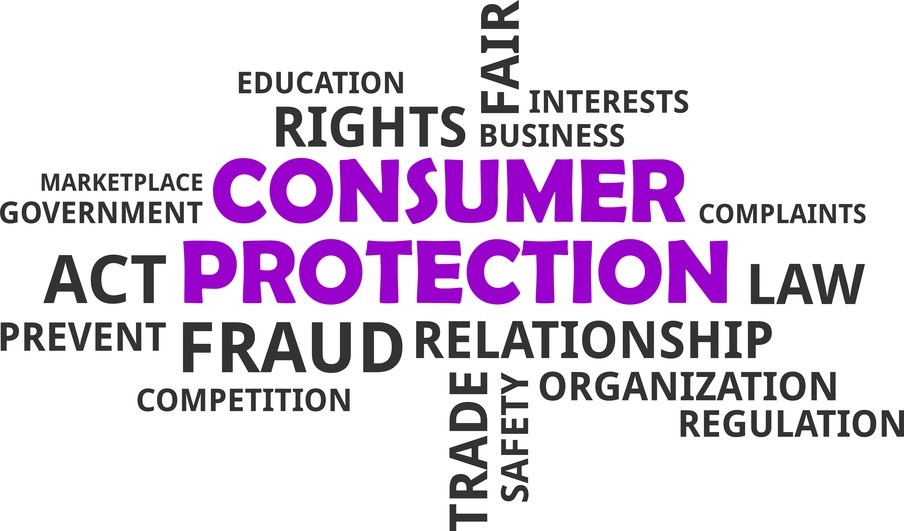Celebrating World Consumer Rights Day
 Ahead of World Consumer Rights Day, here is looking into what constitutes the Consumer Rights in India, especially at a digital age where the click of a mouse can change fortunes for a company.
Ahead of World Consumer Rights Day, here is looking into what constitutes the Consumer Rights in India, especially at a digital age where the click of a mouse can change fortunes for a company.
Consumer Rights is an important aspect of a capitalist world, wherein power lies in the investment made by the purchasers. As such, this World Consumer Rights Day, here is looking back into the history while quickly rehearsing the basic rights every consumer in India needs to be aware of.
The consumer movement marks March 15 with World Consumer Rights Day every year, as a means of raising global awareness about consumer rights and needs. World Consumer Rights Day was inspired by the U.S. President John F Kennedy, who sent a special message to the U.S. Congress on March 15, 1962, in which he formally addressed the issue of consumer rights. He was among the first world leaders to do so. The consumer movement first marked that date in 1983 and now uses the day every year to mobilise action on important issues and campaigns.
India adopted the Consumer Protection Act, later in 1986, thus providing a legal face to the Indian consumers. One of the strongest campaigns for addressal and protection of consumer rights in India, is “Jago Grahak Jago” which literally translates into, “wake up consumers”! This multimedia campaign from Ministry of Consumer Affairs, Government of India is aimed at creating an aware consumer.
So, what makes for an aware consumer? The first step begins with knowing the basics of consumer rights in India, which include:
- The right to be protected from all kind of hazardous goods and services
- The right to be fully informed about the performance and quality of all goods and services
- The right to free choice of goods and services
- The right to be heard in all decision-making processes related to consumer interests
- The right to seek redressal, whenever consumer rights have been infringed
- The right to complete consumer education
In case of infringement of the above rights, a consumer can move to the consumer court to challenge.
Did you know that Birth Rights are Consumer Rights?
This International Women’s Day, #KnowYourRights! #PressforProgress and download from https://t.co/jgQzTJCQFR#BirthIndia #BirthIndiaOrg #ChildBirthEducation #InformedChoice #BirthGuide #InfoGraphics #IWD2018 pic.twitter.com/SuSBLPVFoz
— Birth India (@BirthIndiaOrg) March 8, 2018
Consumers International has announced that the theme for World Consumer Rights Day 2018 will be ‘Making digital marketplaces fairer’. In India, the rising number of e-commerce businesses and thus, e-consumers, has shed light on a number of loopholes that are often reported and complained of by media and individuals. The main vulnerability lies in the fact that e-consumers cannot physically examine the product they are buying or know exactly who they are buying it from. Thus, a need for trust is greater in such a case, when compared to traditional trade. In general, the rights of a consumer, as stated above and enlisted under the Consumer Protection Act, also applies to an e-consumer; although, no specifications have been made regarding acceptability or non-acceptability of electronic transactions.
Dr. Shashi Nath Mandal, Assistant Professor at Hooghly Mohsin College, explains in his article on ‘E-Consumers’ Protection in India’, “Due to difference in the nature and place of business or medium of business few unique practical problems like place of business, jurisdictional issues, non-availability of common dispute resolution system, as there is every possibility of cross border transaction in electronic system (e-shopping), i.e. the buyer of one nation purchases from seller of another nation or vice-versa etc., are indispensable in case of electronic transactions or e-commerce, which certainly requires special measures that are not provided in the existing consumer legislation. The right of consumers and e-consumers though equal in theory but different in operation or enjoyment.”
This is just one of the ways, wherein consumer rights may be tampered with digitally, if not careful. This is where the proposed bill comes in handy. The Consumer Protection Bill, 2018 which is ‘pending’ and is set to replace the Consumer Protection Act will cover transactions, both online and offline, and includes tele-shopping and multi-level marketing.
But it goes without saying, as consumers one should also be more informed before clicking on the ‘add to cart’ option.









